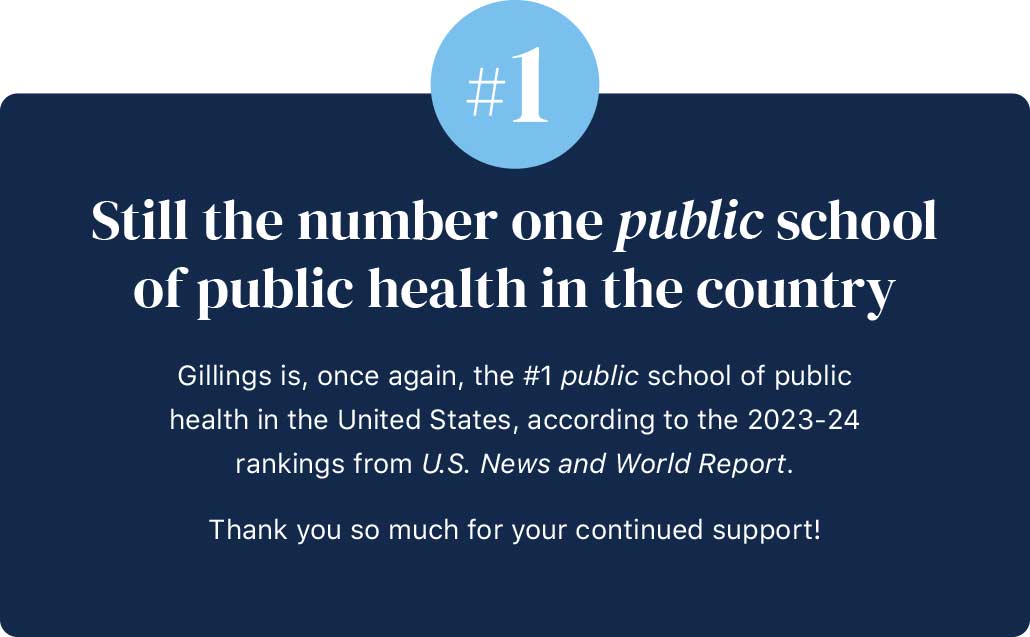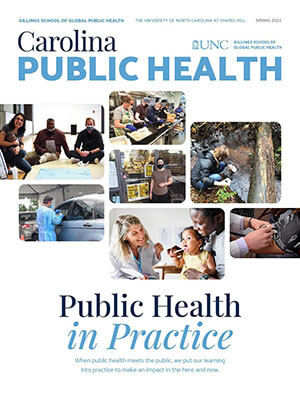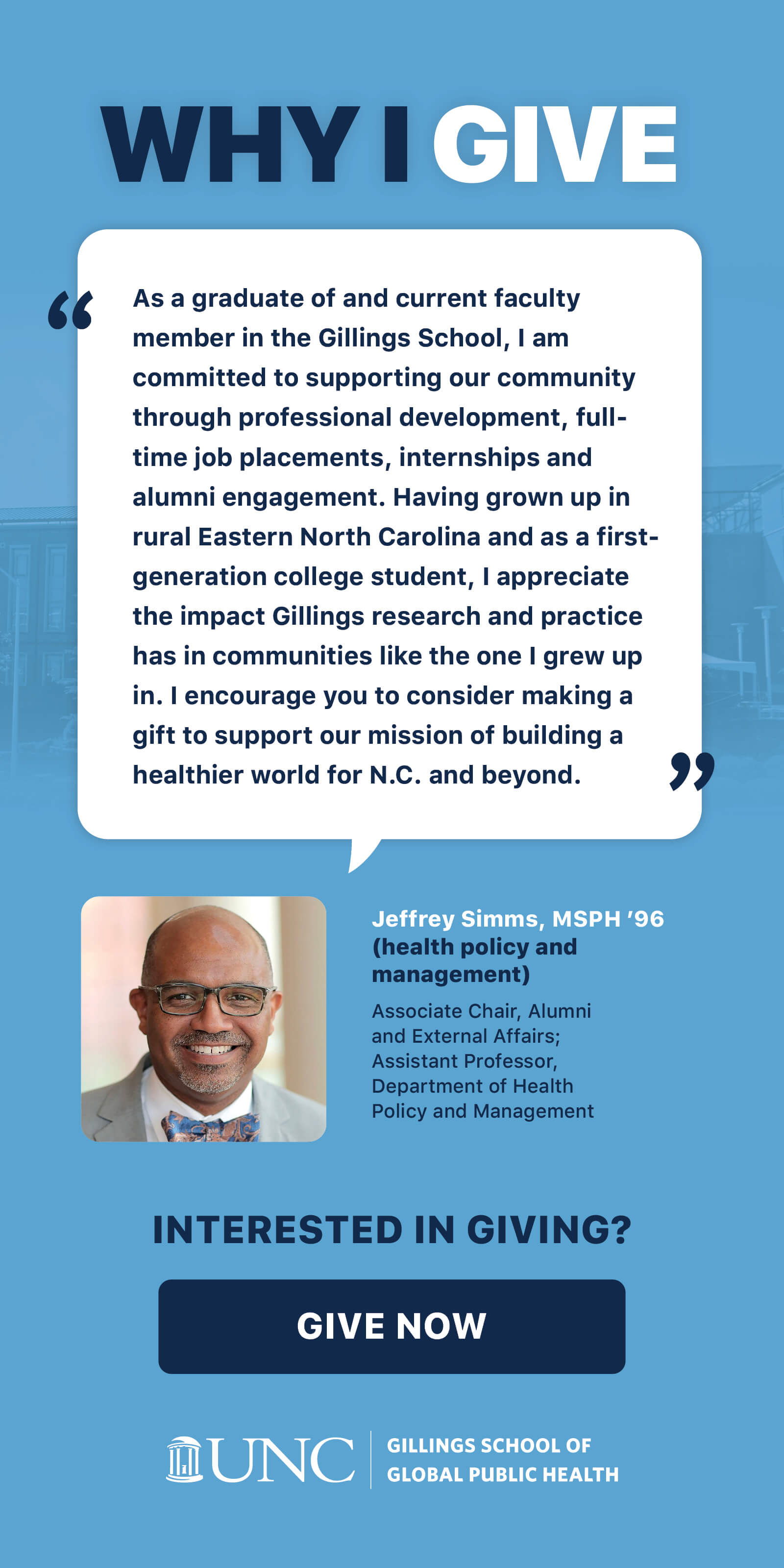Living with COVID: Study Documents COVID-19’s Rapid Transmission Among Household Members
An observational study on household COVID transmission underscores the need for vaccines.
The COVID-19 pandemic has been a prime, real-time example of public health practice in action. Gillings faculty and students continue to play central roles in informing ongoing response efforts; in working on vaccines and treatments to prevent serious infections and stave off future pandemics; and in talking about lessons learned from SARS-CoV-2, whether that’s how to talk about personal health decisions or how to better protect vulnerable communities.
One of the key questions about the emergence of a new virus is how readily infection can spread from person to person. UNC researchers conducted an observational study early in the pandemic showing that the SARS-CoV-2 virus transmits “early and often” among people who share a home, where practices like patient isolation and social distancing might not be practical or possible.
Researchers from Gillings include Kimberly Powers, PhD, associate professor of epidemiology; Feng-Chang Lin, PhD, associate professor of biostatistics; Rebecca Rubinstein, MPH, doctoral epidemiology student; Katie Mollan, MS, biostatistician and doctoral epidemiology student; and Haoming Zhang, MS, recent biostatistics graduate. They collaborated with researchers led by Jessica Lin, MD, MSCR, in UNC’s Institute of Global Health and Infectious Diseases to study infection among 100 COVID-positive patients and 208 of their household members in seven N.C. counties.
"This study was conducted very early in the pandemic — before vaccines were available and even more transmissible variants emerged — and it really underscores the importance of using the vaccines we are now fortunate to have to slow transmission and prevent severe disease."
— Kimberly Powers, PhD, associate professor
The researchers found that SARS-CoV-2 spreads quickly among household members, with the majority of secondary cases occurring within the first week of the initial positive test. They also found that households with a higher living density, or more than three people occupying fewer than six rooms, had a higher risk of infection. With households from underrepresented communities in the study more likely to experience high living density, this finding may provide partial insight into how and why communities of color have suffered disproportionately from the pandemic.
“This study was conducted very early in the pandemic — before vaccines were available and even more transmissible variants emerged — and it really underscores the importance of using the vaccines we are now fortunate to have to slow transmission and prevent severe disease,” Powers says.
The CO-HOST study is one of several COVID-19 studies in which Powers was involved from the outset of the pandemic, with scientists designing, launching and performing research on extraordinarily compressed timelines against an ever-shifting backdrop as pandemic conditions continued to evolve. For example, Powers’ study on N.C. public school teachers’ contact patterns and mask use was a challenge to design because no one knew which school districts would be open for in-person learning during the study’s data collection phase. “Research questions could quickly become obsolete, and potential avenues for pursuing the work could open or close at a moment’s notice,” she says of doing real-time research in a pandemic.
As public health experts worked almost nonstop to understand and respond to the emerging pandemic, feelings of stress and exhaustion were accompanied by unprecedented teamwork and a shared sense of purpose. “Everywhere I looked, both within my own research teams and across my full network of colleagues, people were really charging into this crisis and throwing everything they had at this threat from day one,” Powers says. “It was all hands on deck around the clock, with new collaborations forming and taking off overnight. Everyone really showed up for months and months and months on end in ways that I’ll never forget.”





